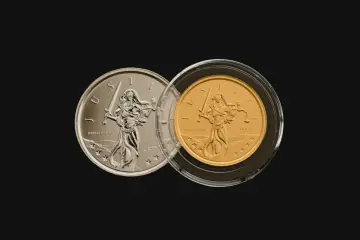A derivative is a contract whose value derives from the performance of a underlying entity. In finance, the underlying entity is often an index, interest rate, or asset. The underlying entity is referred to as the “underlying.” This type of derivative is used to hedge or speculate on a particular investment. It is most commonly used in the stock market, although it can also be used in other markets.
A derivative is a contract between two parties in which one party assumes a future risk for the other party. It can also be used to reduce a company’s overall risk and exposure. For example, an airline company may be worried that the price of oil will rise next year, which will increase its fuel costs. In this case, the company may opt to enter into a derivative contract called a forward contract that allows it to purchase oil at a preset price in the future.
A derivative is a contract between two parties where one party agrees to exchange an asset for another. Its value is based on the underlying asset. Moreover, it is extremely volatile, and is therefore unsuitable for investors who are not accustomed to trading in financial markets. But a trader should know exactly what they’re buying and selling, as the losses may exceed the amounts invested.
The most common derivative is a forward contract, which is a non-standardized contract. It differs from a spot contract, which is a contract to buy or sell an asset at a specific future date. For example, a corn farmer knows that he will have 5,000 bushels of corn by October, but the contract states that it will not be sold until the spot date, which is usually two business days from today.
A derivative is a contract between two parties that specifies the conditions under which payments will be made. Typically, assets are stocks, currencies, interest rates, and other types of derivatives. But there are also options, which are not derivatives but instead are investments. Whether the market is booming or falling, derivatives are a necessary part of a business’s operations. It’s important to understand the differences between these two types of contracts.
A derivative is a contract between two parties. The buyer is responsible for the risk. A futures contract is a contract that specifies an asset’s price. The option is the buyer’s right to enter a futures contract. If the value of a commodity increases significantly, a derivative may be used to hedge the risk. This type of investment is similar to a forwards contract.
In finance, a derivative is a contract between two parties in which the value of an asset depends on the underlying asset. It’s a type of equity that is traded through a large bank. Its value is determined by the underlying asset’s price. The underlying asset is also a derivative. These are similar to stocks, but they have different purposes. For example, an option can be a call, while a warrant can be a put.
A derivative is an investment that derives its value from the performance of a underlying asset. A buyer agrees to purchase an asset at a certain price or date in the future. Oftentimes, the buyer and seller are two separate entities with different objectives. The buyer of a given instrument can profit from the movements of the underlying asset. A seller can sell a futures contract for an underlying commodity, or he can use a derivative in order to reduce the risk of a currency.
In finance, a derivative is a financial instrument that derives its value from another asset. For example, a contract to buy 10,000 bushels of corn for $5 per bushel is valued at $50,000, but trades for $10. A derivative is a contract to buy or sell an underlying asset. The risk of the underlying asset is reflected in the price of the underlying. Generally, a derivative will increase the risks of an underlying asset.






